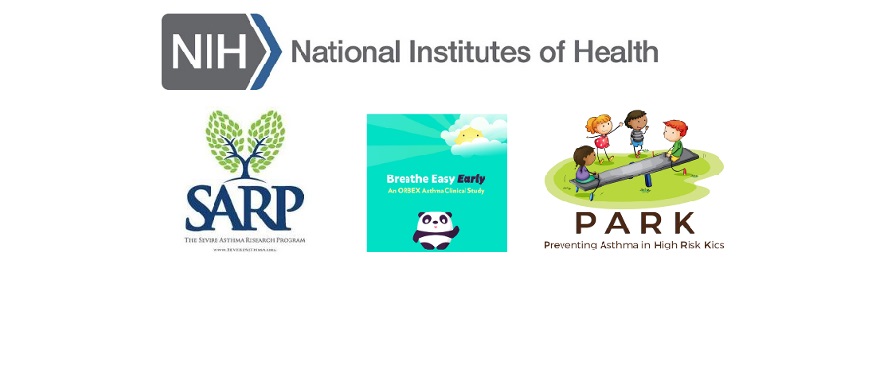Welcome!
The NIAID/DMID-sponsored Vaccine and Treatment Evaluation Unit at Emory is one of eight national VTEUs charged with vaccine development and testing. It was formed in XXX to conduct clinical and translational research in vaccines, vaccine preventable diseases, and pediatric infectious diseases. Led since 2014 by Dr. Mark J. Mulligan, Professor of Medicine, Associate Director of the Emory Vaccine Center (EVC), and Executive Director of the Hope Clinic of the EVC, the mission of the VTEU is to reduce the burden of infectious diseases worldwide through the discovery, evaluation, and delivery of effective and safe vaccines and therapeutics.
Our vision is that tomorrow will be better than today.
Current projects include:
- Prevention of seasonal and avian influenza infections
- Dissecting the immune response to influenza vaccination through systems vaccinology
- Defining the immune response to Staphylococcus aureus colonization and disease in children and adults
- Determining biomarkers of pneumonia severity in children
- Evaluating new and existing vaccines for pathogens such as influenza, S. aureus, pertussis, CMV, rotavirus, HPV, pneumococcus, and Group B streptococcus.
- Evaluating new therapies for S. aureus and C. difficile.
- Pharmacokinetic studies of beta-lactam antibiotics in special populations, such as critically ill adults and patients with cystic fibrosis
- Investigating issues around vaccine safety, including vaccination of at-risk populations.
The VTEU also serves as a resource to providers in the area for issues related to vaccine safety through the CDC-funded Clinical Immunization Safety Assessment (CISA) Network. If you have questions regarding potential adverse events following immunization or other vaccine-related questions, please contact us.
1. Evaluation of New Vaccines and Therapeutics
Emory investigators have expertise in a number of infectious diseases and specific, special populations.
- Infectious Diseases of Interest
- Ebola
- Influenza
- Pertussis
- S. aureus infections
- Group B Streptococcus Infections
- Clostridium difficile infections
- Respiratory Syncitial Virus
- Varicella Zoster Virus
- Zika
2. Post-licensure Evaluation of Existing Agents
Once vaccines are licensed, the burden of disease often shifts considerably. Often, this leads to near-elimination of certain pathogens (like measles and polio), but sometimes can lead to unforeseen changes in the strains that cause disease (such as strain replacement that has been seen following pneumococcal vaccination). VTEU faculty are heavily engaged in disease surveillance in order to inform next generation vaccines and new vaccine strategies.
3. Investigations of Potential Adverse Events Following Immunization
Vaccines that are currently in use have excellent side effect profiles; however, no drug or vaccine can ever be completely harmless. Ongoing work in the VTEU includes evaluation of individual reports of adverse events following immunizations and evaluation of vaccines in patient populations that may be at higher risk of adverse events, such as immunocompromised hosts and those with asthma.
4. Deciphering the Host Immune Response to Infection and Immunization
Through campus-wide collaborations, VTEU investigators use cutting-edge technologies to assess immune responses in both healthy vaccinees and in those experiencing acute disease. Employing high-throughput sequencing, proteomics, and metabolomics, VTEU investigators are using systems biology tools to unlock basic mechanisms of human immune responses.
Clinical Research Principal Investigators and Co-Investigators
Clinical Research Nurse and Coordinator
Shannon Kilman, BA, CRC I
Please see a list of some of the studies we are currently conducting. If you would like any information about these studies, please contact us at vaccineresearch@vumc.org
NIH Funded Studies
1. SCOUT-CAP (DMID 14-0079): In this study, we are comparing 5 days of antibiotics to 10 days of antibiotics in children 6 months - 6 years of age with community acquired pneumonia
2. CF PK/PD (DMID 16-0078): We are currently enrolling children and adults with cystic fibrosis who are receiving either cefepime, piperacillin-tazobactam, or meropenem. We are evaluating blood concentrations of these beta-lactam antibiotics to determine optimal dosing strategies.
3. ICU PK/PD (DMID 16-0077): A companion study to DMID 16-0078, this study measures the variability of target dose achievement in critically ill adults.
4. Pertussis in Peru (DMID 13-0090): In this study, we are using ribosome profiling and RNA-sequencing to evaluate the immune response following administration of either whole cell pertussis vaccine (DTP) or acellular vaccine (DTaP) in infants. The study is being conducted with our colleagues Claudio Lanata and Mariana Leguia in Lima, Peru.
5. Pre-pandemic influenza trials (DMID 17-0076, 17-0077, 17-0090, 14-0015, and 10-0074): A series of studies are underway aimed at evaluating the immune response to avian influenza strains. We have employed a systems vaccinology approach to both A/H5N1 and A/H7N9, seeking to understand the mechanism of action of novel adjuvants and biomarker-based approaches to predicting immunogenicity.
6. Fecal Microbiota Restoration (DMID 13-0045): For adult patients with recurrent diarrhea due to C. difficile infection, we are studying the short-term and long-term efficacy of fecal transplantation.
7. Live Attenuated Pertussis Vaccine (DMID 17-0010): We are seeking healthy adult volunteers who will receive either an intranasal pertussis vaccine or placebo in an effort to improve pertussis immunogenicity.
CDC-funded studies
1. LAIV in Asthma Patients: LAIV (FluMist) is a live, intranasal influenza vaccine. In young children, LAIV has been associated with wheezing. In this study, we will vaccinate children with asthma who are 5-11 years of age with either LAIV or IIV (intramuscular vaccine). The primary goal is to evaluate the frequency of wheezing, if any, in both groups.
Human Vaccine Project (HVP)-funded studies
1. UIVI-001: This is the first study conducted as part of the Universal Influenza Vaccine Initiative, led by Dr. Buddy Creech and Dr. Jim Crowe. In this first study, 10 volunteers will receive standard influenza vaccine (Flucelvax) and have comprehensive assessments of their immune response in the hours and days following vaccination. In addition, lymph node biopsies and bone marrow aspirates will be performed in order to evaluate the tissue-specific immune responses that vaccination elicits.
Industry-sponsored studies
1. Bezlotoxumab PK in children (Merck): We are recruiting children with C. difficile disease to receive a single dose of an FDA-approved (adults) monoclonal antibody that may reduce the frequency of recurrent C. difficile disease.
Please click here for publications:
Get Involved!
There are always great ways to become involved in vaccine research at Vanderbilt.
1. Volunteer for a study
We have a variety of studies going on right now that seek to enroll healthy adult volunteers. Many of these studies involve either licensed vaccines (like influenza vaccines) or vaccines in development. These studies typically require 5-10 study visits, which are compensated based on the time and effort required to participate. If you think you would like to participate in a study, please email us.
2. Volunteer as a recruiter
You may have medical conditions that prevent you from participating in research, or may simply wish not to take part in studies we are conducting. We welcome your involvement as an advocate for vaccine research, letting people know about our studies, hanging up flyers, and helping us advance our mission to bring safe and effective vaccines to the world. Contact us by email to volunteer.
3. Employment opportunities
The VVRP is a dynamic place to work and Vanderbilt University Medical Center is consistently ranked as a highly desirable place to work in Nashville. Please email us if you are interested in hearing about opportunities for research technicians (laboratory), research nurses, regulatory specialists, and other positions.
We're here to help!
Click below to submit a question or to get in touch with one of our team's coordinators.



